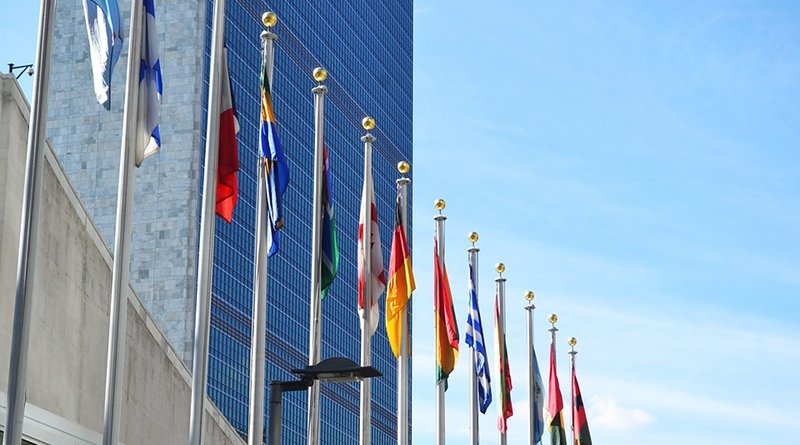Why The UN Must Evolve To Fight Modern-Day Terror – Analysis
By Observer Research Foundation
By Kabir Taneja
Terrorism remains one of the most critical issues for India’s national security, and the global security architecture in general, despite setbacks both on the tactical and diplomatic fronts in recent times. China’s move to block the blacklisting of members of Pakistan-backed terror groups such as Lashkar-e-taiba and Jaish-e-mohammed, even as recently as last week, shows the glaring limitations of the United Nations (UN) to build a broad consensus on such issues, with countries using these gaps to achieve personal goals. Coincidentally, this move by Beijing came on the same day as UN secretary-general Antonio Guterres said in India that no reason or pretext could justify an act of terrorism.
The threat of terrorism itself has been fast evolving and far surpasses some of the fundamental challenges that the UN, UN Security Council, agencies and members are continuing to try and navigate — such as defining the term terrorism and developing further mechanisms to list terror entities. Beyond this, the ease with which Islamic State (IS) attracted recruits from around the world and the ease with which they travelled across borders to join the so-called caliphate in Syria and Iraq showed just how far behind a global consensus against international terrorism is.
Going into 2023, with the global order in flux, there are three critical issues on the counterterrorism front that systems such as the UN need to navigate internally, when it comes to diplomacy, and externally, when it comes to quantifiable action in targeting terror groups and individuals involved.
The first is technology. Recent advancements ranging from drones to online platforms, cryptocurrencies to remotely inspired terror attacks using the security of end-to-end encryption and VPNS are new security challenges. All these platforms are for civilian use and purposes but are being co-opted by militant groups. Whether it is the Taliban using Twitter to trend a hashtag in tribute to its suicide bombers, pro-is channels on Telegram distributing sophisticatedly produced ideological publications in video, audio, and text, or the online privacy and end-to-end encryption debate also giving safe space to militant groups remain issues that demand a realistic discussion between tech companies, States, and citizens.
The second is the brewing big power competition between the United States (US) and China, now exacerbated due to the Ukraine war. China has a history of blocking any blacklisting of Pakistan-based terror groups at the UN, but these tactics undermine any pan-global understanding against terrorism for narrower strategic and tactical gains based on regional requirements. And this, of course, is not exclusive to China’s strategic decisions on using multilateral groupings such as the UN to protect its interests. The removal of the East Turkestan Islamic Movement (ETIM), an Uyghur-led militant group known to have attacked targets in China’s restive Xinjiang province, from US anti-terror listing in 2020 was an equally problematic decision. Such moves ultimately find their way to the UN, where power competitions gain a public face and pedestal.
The last is the worrying precedence set on countering terrorism and extremism through the Us-taliban deal on Afghanistan signed in Qatar in 2020. The deal’s compromising nature, giving the Taliban political agency after fighting against it has long-term repercussions for the politics of countering terror.
The leeway and political space offered to the Taliban — which includes narratives such as working with the group to counter other terror threats and agreeing to not fund any resistance groups that may challenge the Taliban’s rule — will be seen as a possible avenue by others. Leader of Syria-based Hay’at Tahrir al Sham (HTS), a group previously aligned with both al-qaeda and IS, gave an interview to an American broadcaster effectively calling for the US to remove it from its terror listing after the Doha deal. In subsequent months, Us-led counterterror operations killed senior IS leaders in Syria, often near Hts-controlled territories, raising questions if Hts-aided US ops by providing on-ground human intelligence in the hope of a deal with Washington.
These three issues also showcase how terrorism has evolved out of larger UN agendas. The body may find it hard to keep up to speed with the nature of modern terrorism unless it evolves its own structures to reflect the world of today and tomorrow.
This article originally appeared in Hindustan Times.

